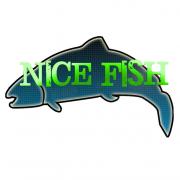(Total Views: 351)
Posted On: 03/14/2018 11:20:25 AM
Post# of 99595

[b ]REVERSE MERGERS:[ /b]
I found this interesting. From Trader53:
Reverse Mergers: Guide and Stages of Readiness
A Reverse Merger
allows a privately held company to go public
by acquiring a controlling interest in,
and merging with,
a public operating or public shell company.
In a Reverse Merger process,
the private operating company shareholders
exchange their shares of the private company
for either new or existing shares
of the public company
At the end of the transaction,
the shareholders of the private operating company
own a majority of the public company
and the private operating company
has become a wholly owned subsidiary
of the public company.
_______________________________________________________________
A shell company
a publically traded company with
(1) no, or nominal operations and
(2) either no or nominal assets
or assets consisting solely of
any amount of cash and cash equivalents.
A Reverse Merger
is the most common alternative
to an initial public offering (IPO)
or direct public offering (DPO)
for a company seeking to go public.
http://www.legalandcompliance.com/reverse-mergers/
________________________________________________________________
The Cost of the Shell
In a Reverse Merger transaction,
the private operating business
must pay for the public shell company.
That payment may be in cash, equity or both.
The average cash value
of a fully reporting public entity
with no liabilities, no issues
and which is otherwise “clean”
is between $280,000 – $400,000.
http://www.legalandcompliance.com/reverse-mergers/
I found this interesting. From Trader53:
Reverse Mergers: Guide and Stages of Readiness
A Reverse Merger
allows a privately held company to go public
by acquiring a controlling interest in,
and merging with,
a public operating or public shell company.
In a Reverse Merger process,
the private operating company shareholders
exchange their shares of the private company
for either new or existing shares
of the public company
At the end of the transaction,
the shareholders of the private operating company
own a majority of the public company
and the private operating company
has become a wholly owned subsidiary
of the public company.
_______________________________________________________________
A shell company
a publically traded company with
(1) no, or nominal operations and
(2) either no or nominal assets
or assets consisting solely of
any amount of cash and cash equivalents.
A Reverse Merger
is the most common alternative
to an initial public offering (IPO)
or direct public offering (DPO)
for a company seeking to go public.
http://www.legalandcompliance.com/reverse-mergers/
________________________________________________________________
The Cost of the Shell
In a Reverse Merger transaction,
the private operating business
must pay for the public shell company.
That payment may be in cash, equity or both.
The average cash value
of a fully reporting public entity
with no liabilities, no issues
and which is otherwise “clean”
is between $280,000 – $400,000.
http://www.legalandcompliance.com/reverse-mergers/
'Everything works out in the end,,,If it hasn't worked out,,it's not the end'
https://twitter.com/twitter/statuses/957208055766241280
https://twitter.com/twitter/statuses/957208055766241280
